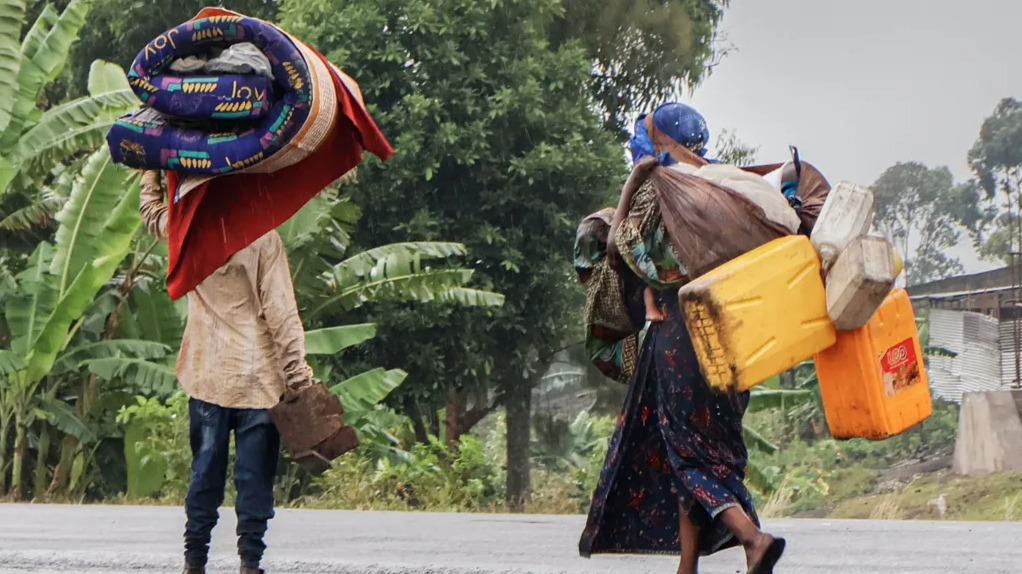A pause in US foreign aid has “severely impacted” humanitarian efforts in conflict-hit Democratic Republic of Congo, a senior UN official in the country has said.
Bruno Lemarquis told reporters that DR Congo was the largest recipient of US humanitarian assistance last year – 70% of the African country’s aid had come from Washington.
US President Donald Trump’s decision to pause all international aid was, therefore, a “major source of concern”, Mr Lemarquis said.
The suspension comes as intense clashes between the Rwandan-backed M23 rebel group and DR Congo’s army worsen an already dire humanitarian crisis.
Approximately 700,000 people are said to have been forced from their homes since the fighting escalated last month.
The risk of epidemics such as cholera and mpox were also high in Goma, Mr Lemarquis said during Tuesday’s briefing.
He added that an increased number of residents needed food aid as prices had risen, but the US pause on foreign aid hindered agencies from tackling these issues.
“Our ultra dependence on US funding means a lot of programmes had to shut down on everything we are doing. So, it’s emergency health, it is emergency shelter.” Mr Lemarquis said.
President Trump froze all foreign assistance provided by the United States, by far the world’s biggest aid donor, on his first day back in office, calling for a review to ensure it abided by his “America First” foreign policy.
Trump’s administration has targeted the government’s main overseas aid agency, USAID, saying its spending is totally unexplainable.
The dramatic suspension of humanitarian assistance has hit programmes across the world – one veteran humanitarian worker told the BBC the pause was “like an earthquake across the aid sector”.
Pepfar, a ground-breaking US programme countering the global spread of HIV, is among those that have been heavily impacted.
“The program is shuttered…. Services are shut,” Dr Atul Gawande, the former Assistant Administrator for Global Health at USAID, told the BBC last month.
He said clinics that served 20 million people with HIV were affected.
And in Syria, water, sanitation and security services were all upended at the al-Hol displacement camp following Trump’s directive.
Critical services have also been hit in Afghanistan, a country whose health sector receives a huge portion of its funding from the US.
A doctor responsible for USAID-funded projects there told the BBC that more than 60 of his team, including midwives, nurses and doctors, were told to stay at home after funding was paused.
“If the funding halt continues, mothers will be forced to give birth at home as the facilities are closed and it will increase mortality rates,” one midwife said. -BBC
Stay informed with The Namibian – your source for credible journalism. Get in-depth reporting and opinions for
only N$85 a month. Invest in journalism, invest in democracy –
Subscribe Now!










